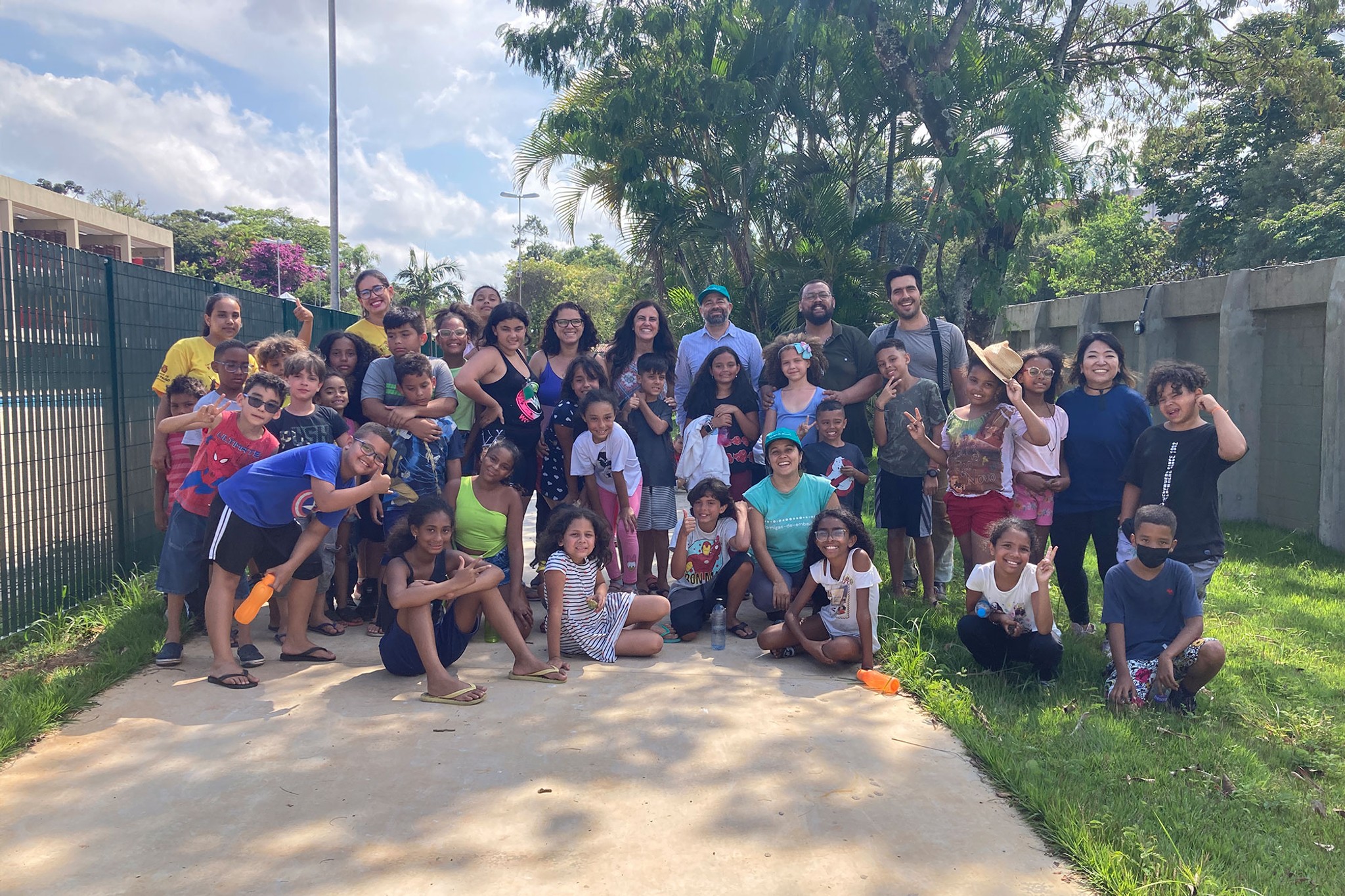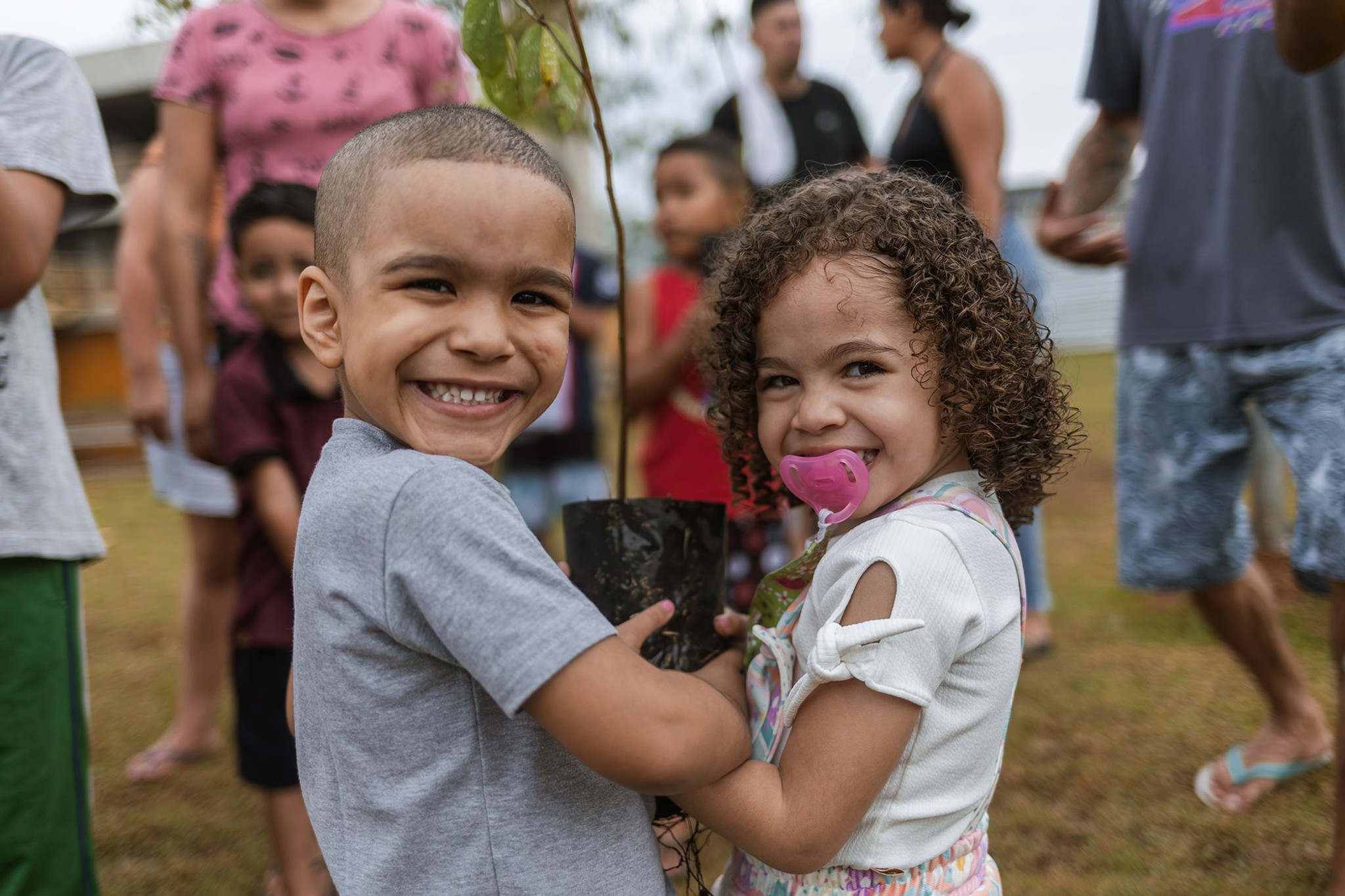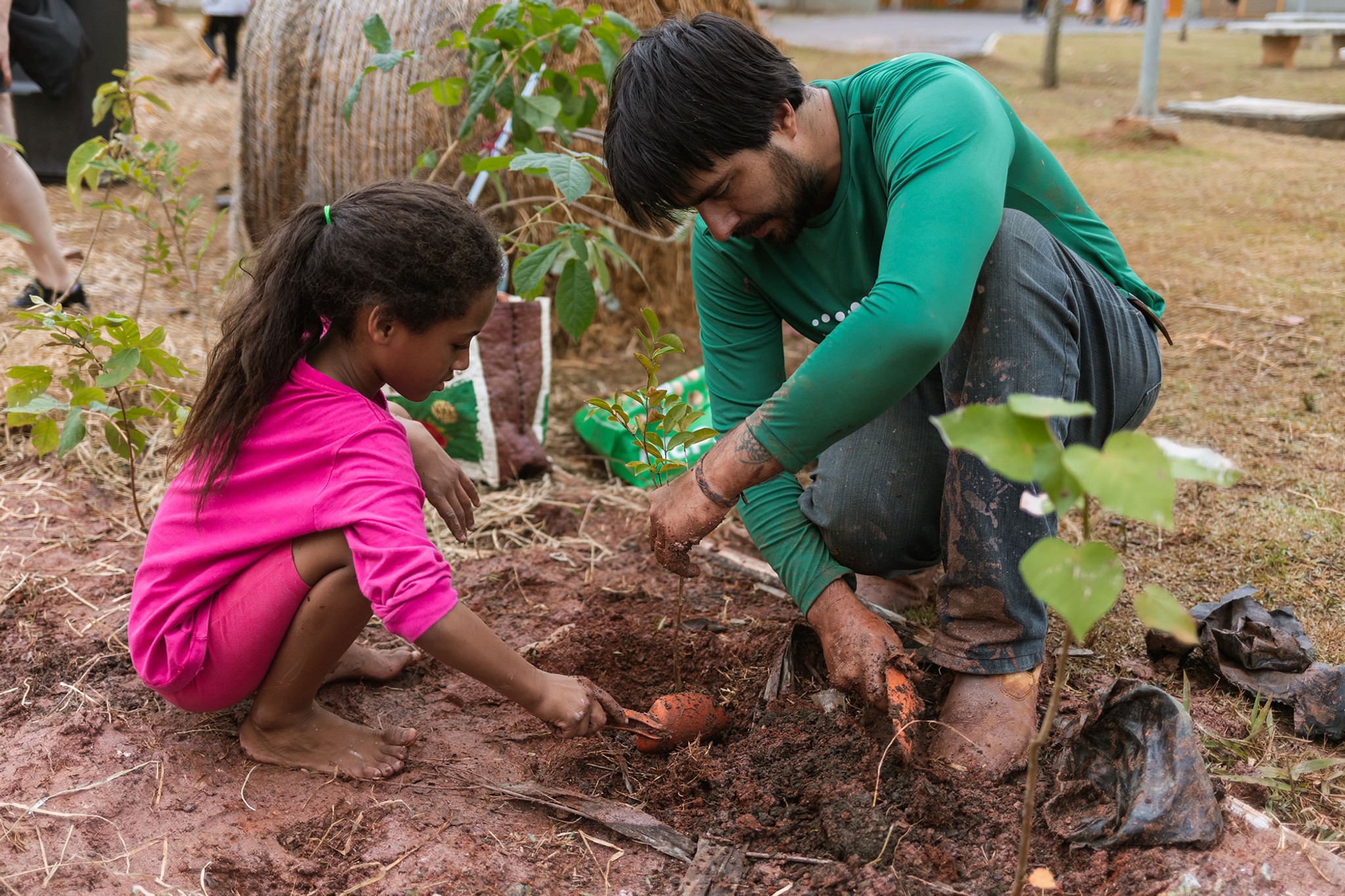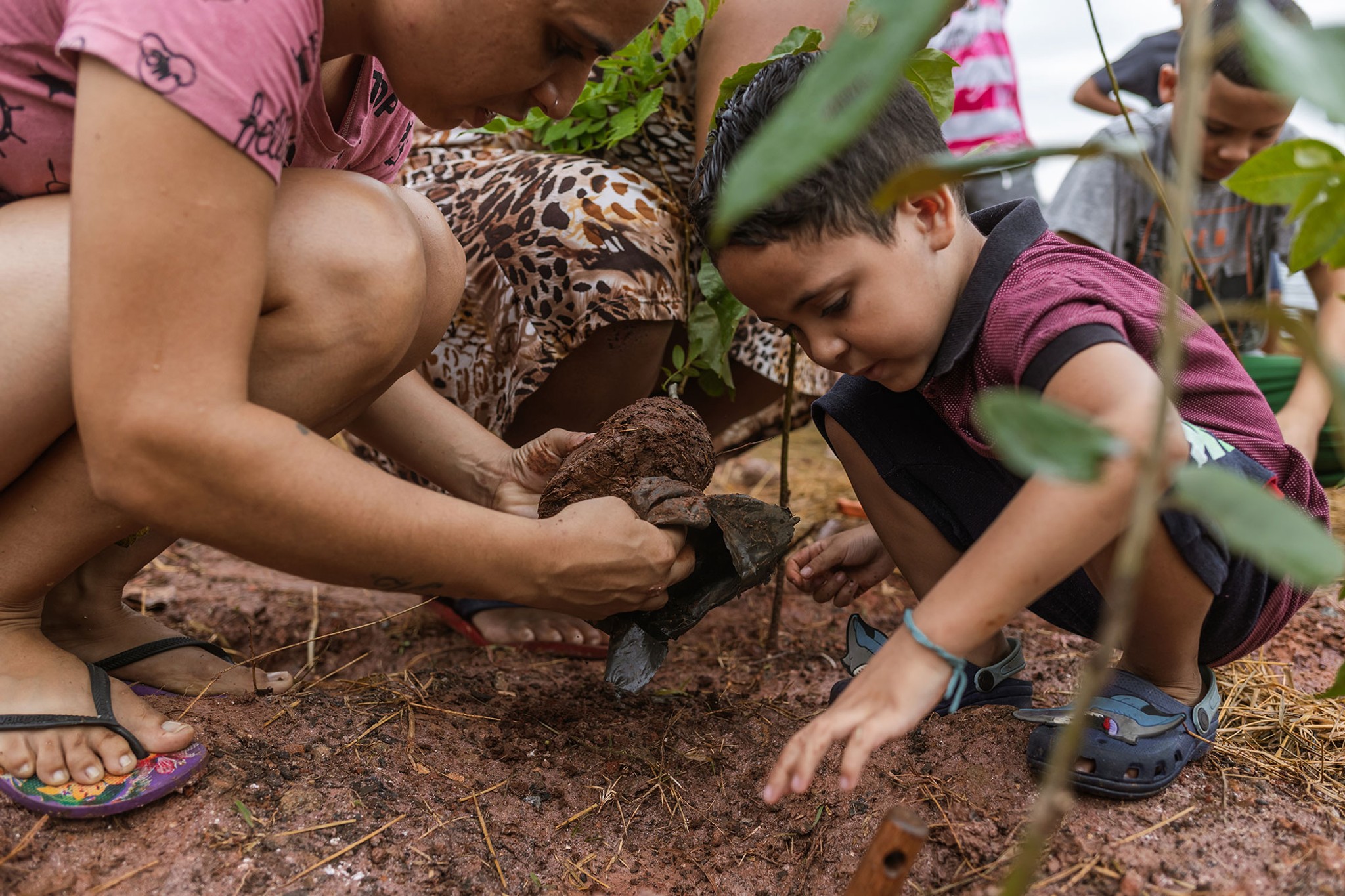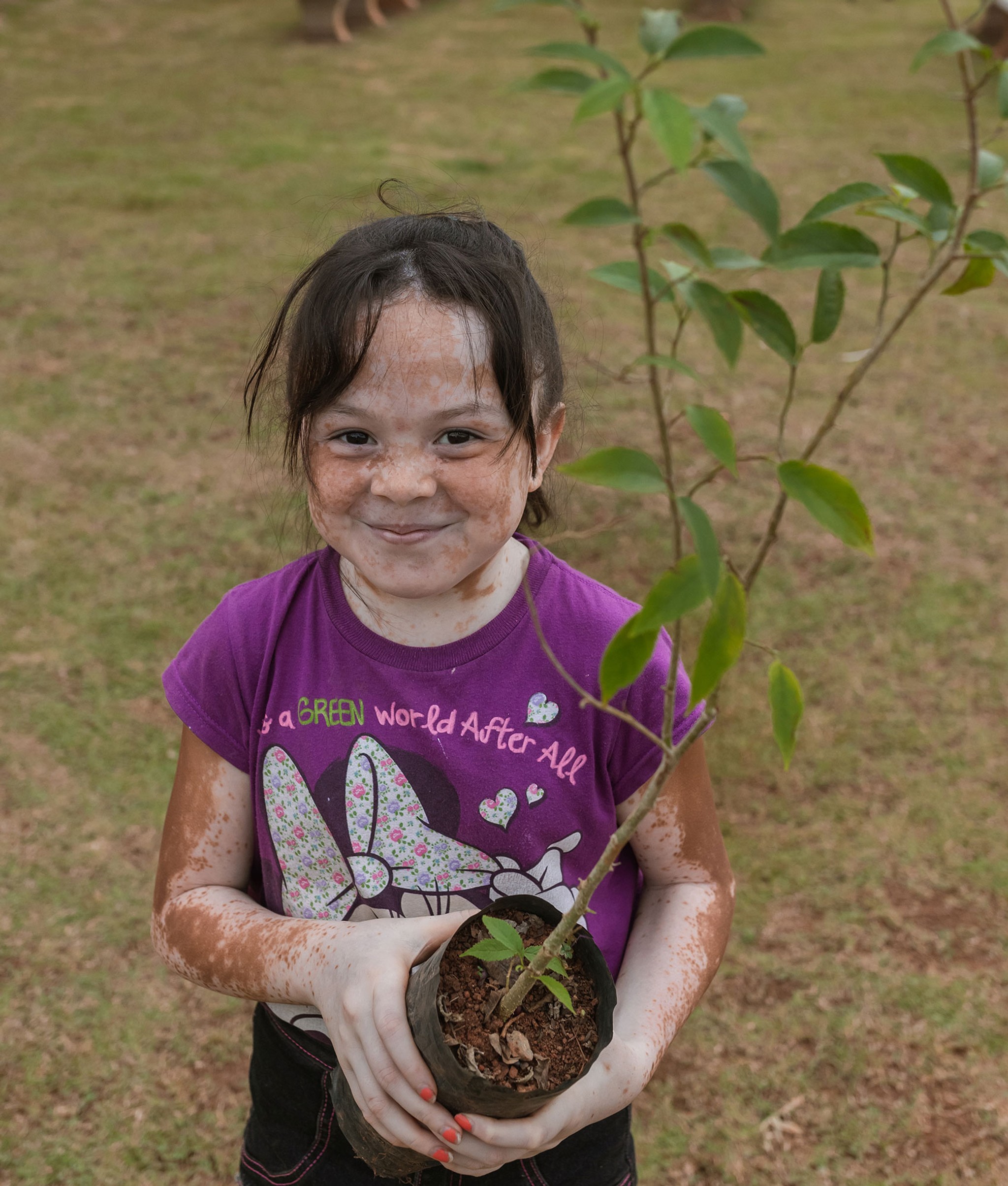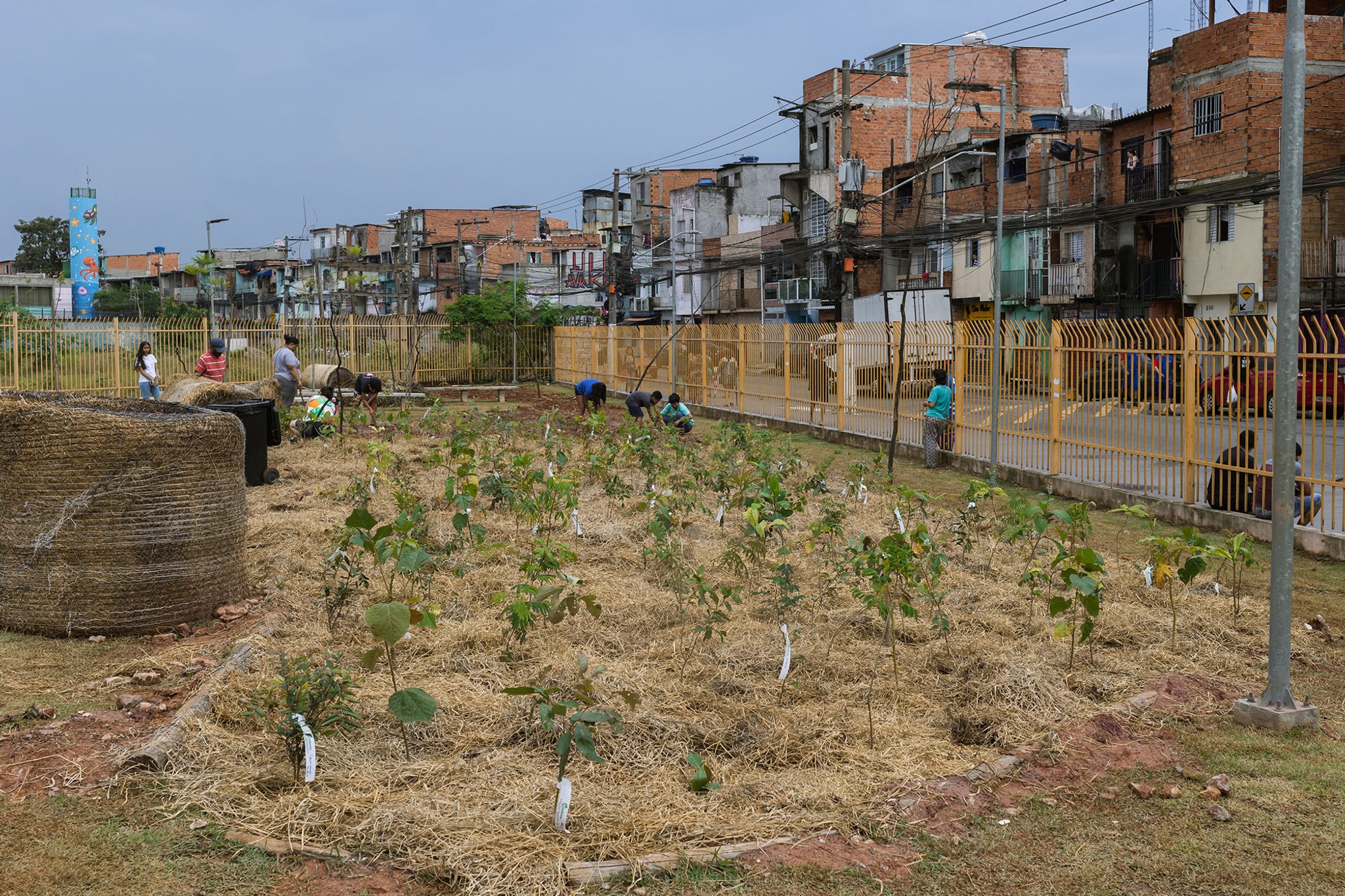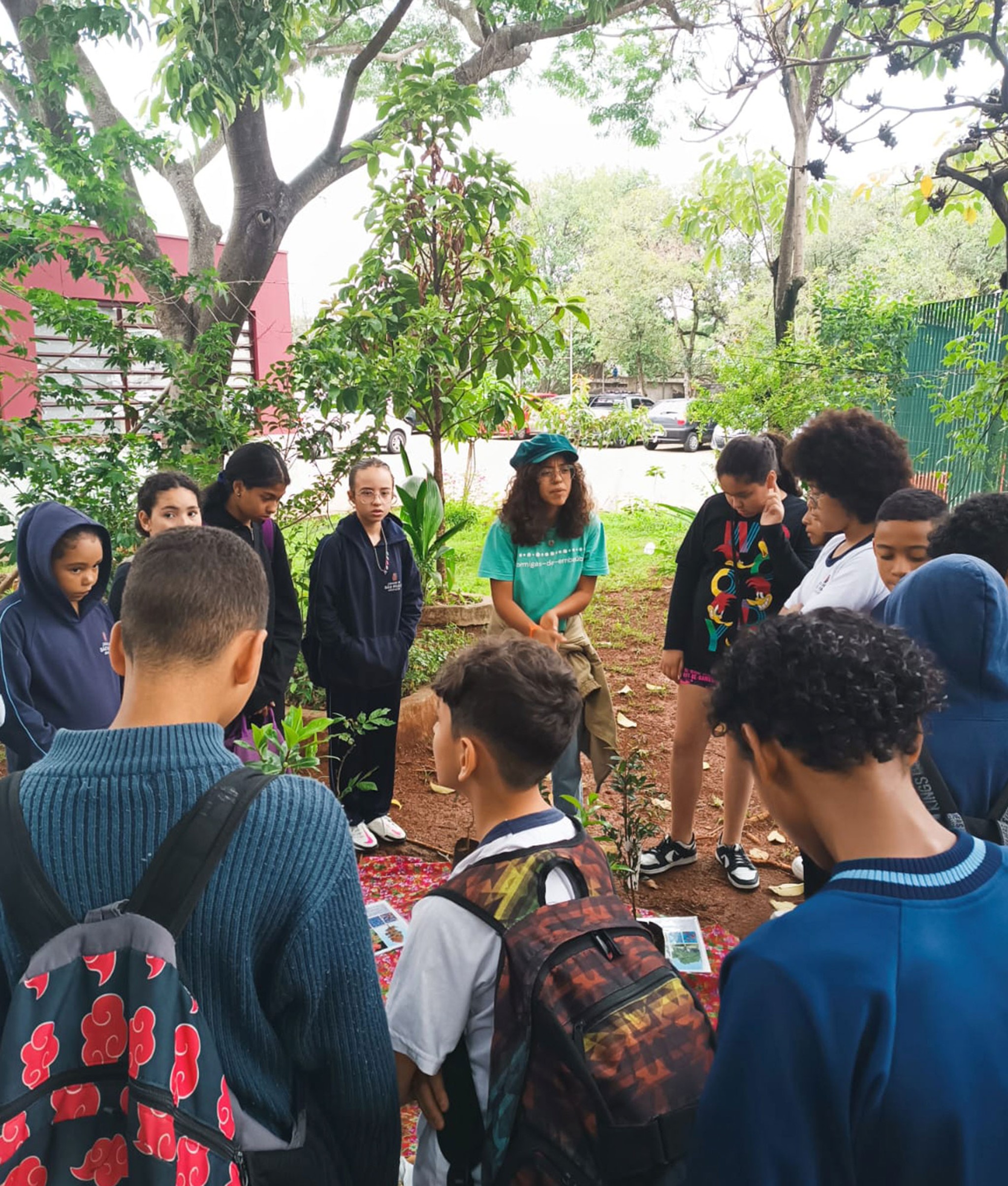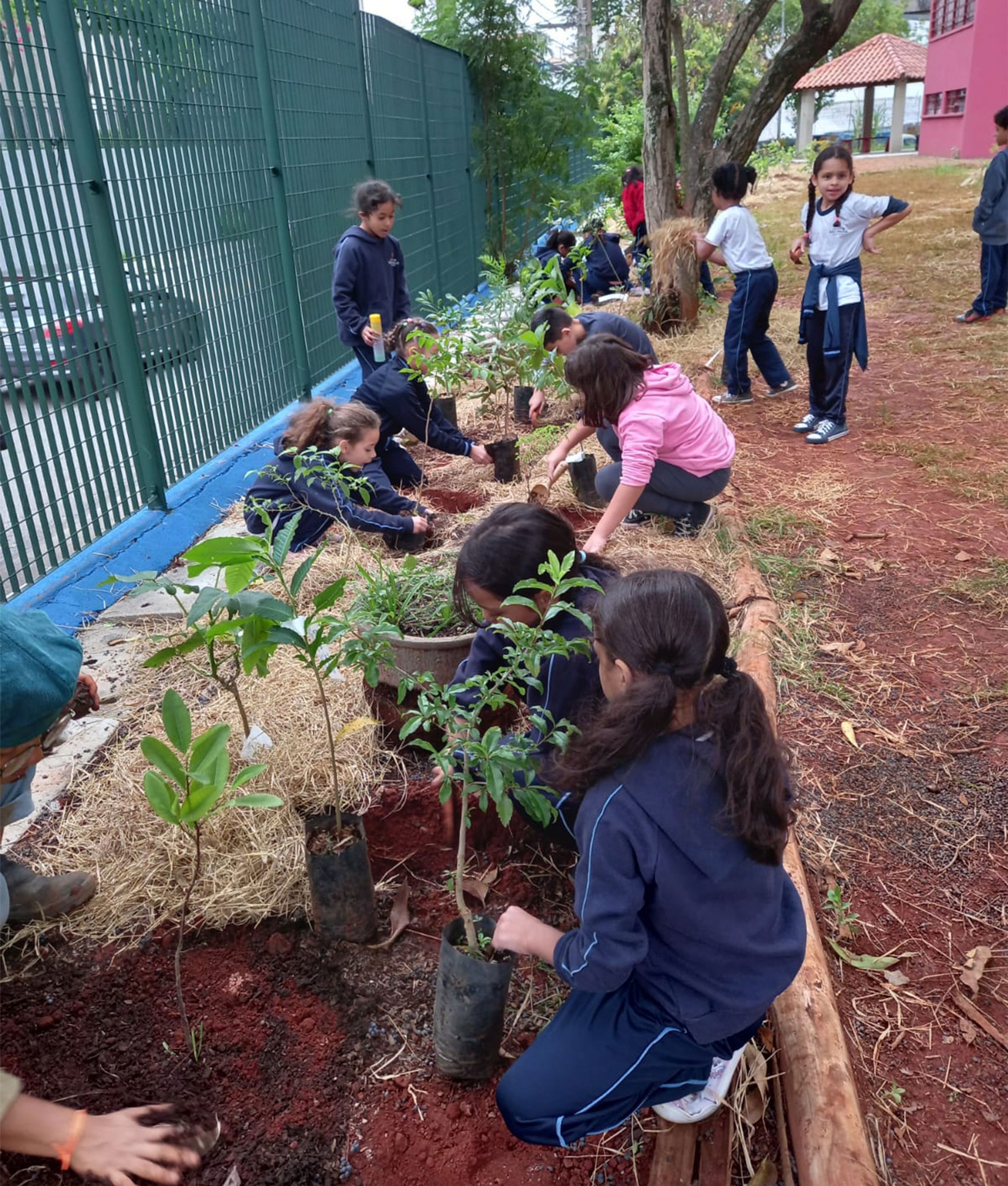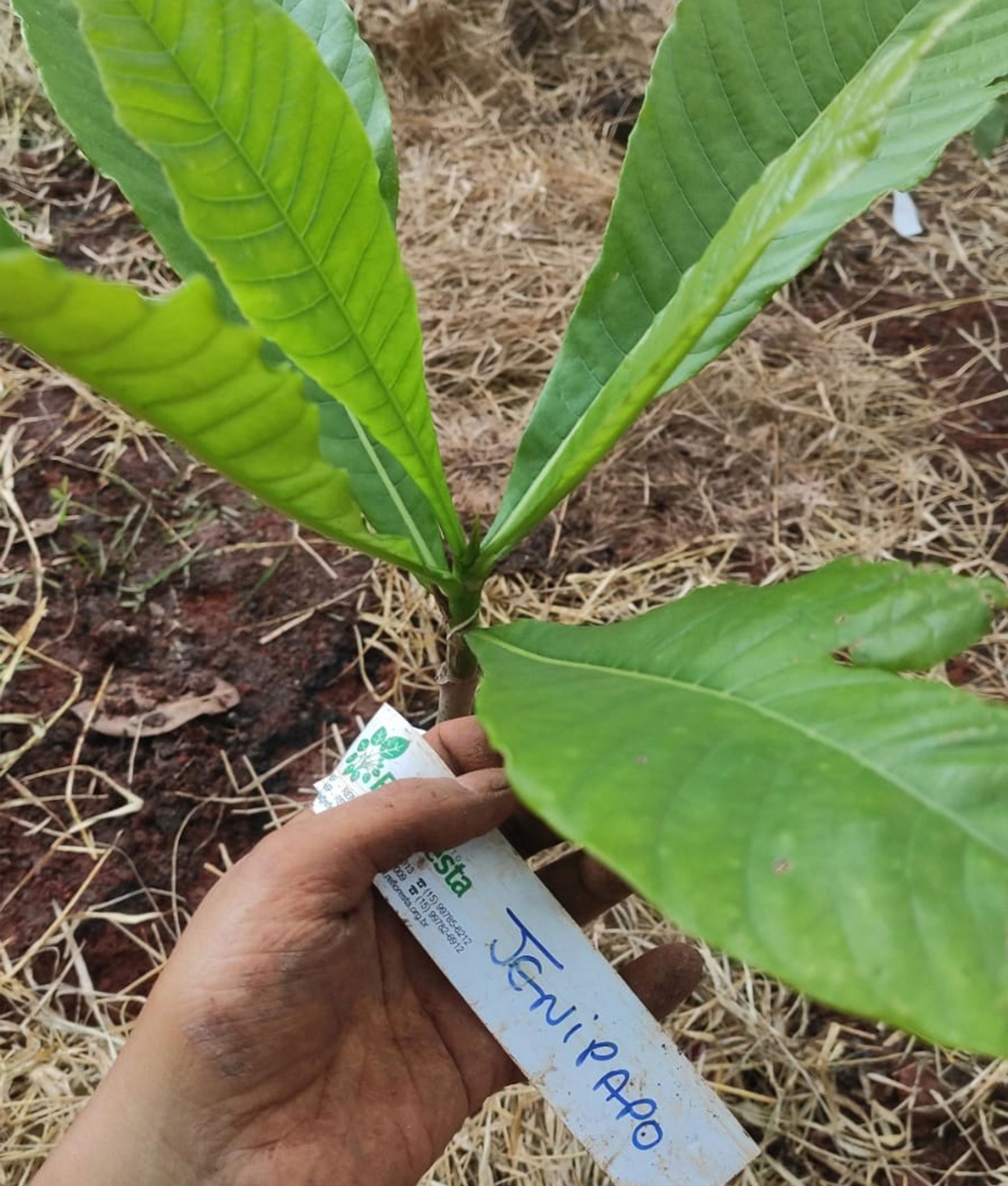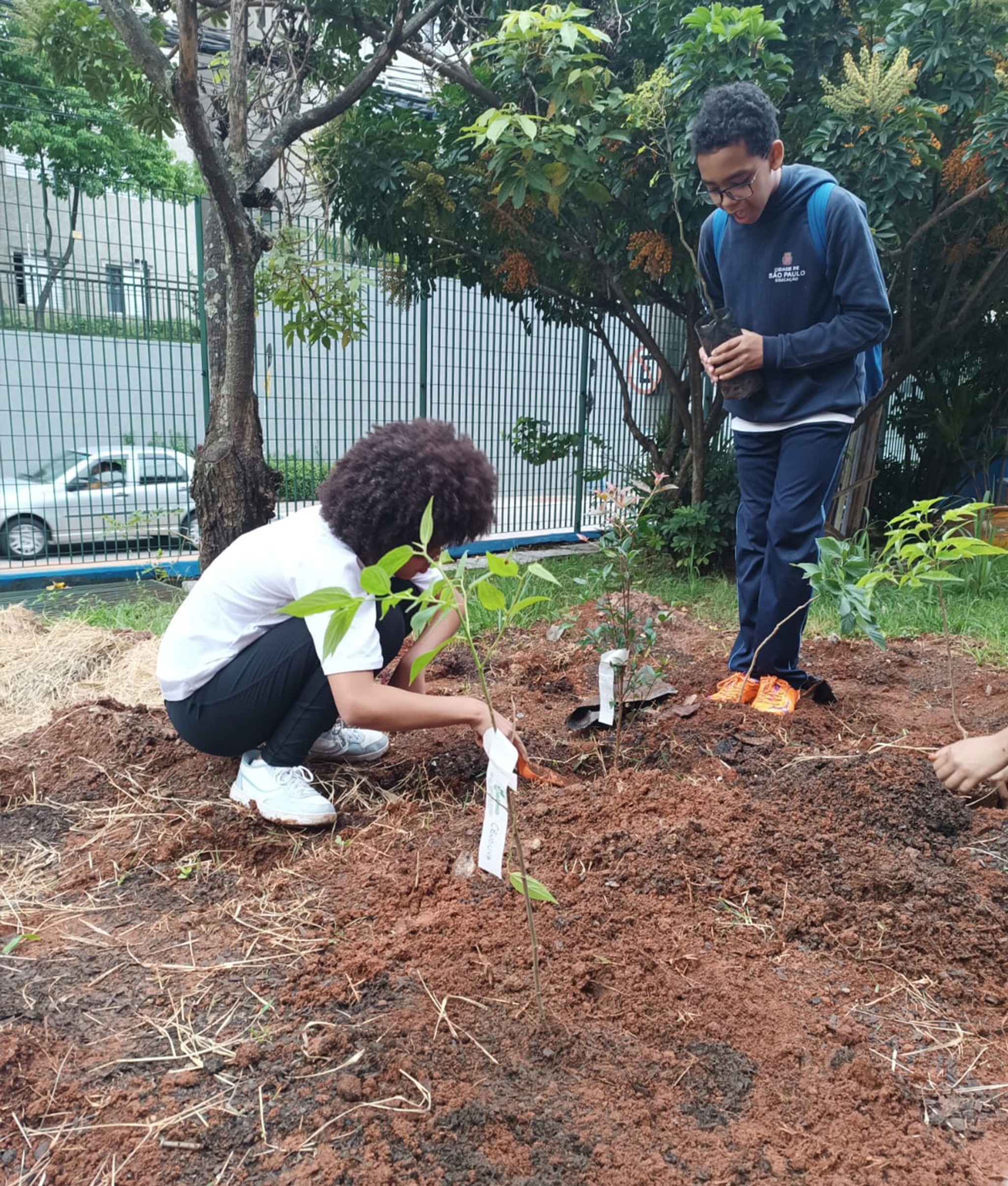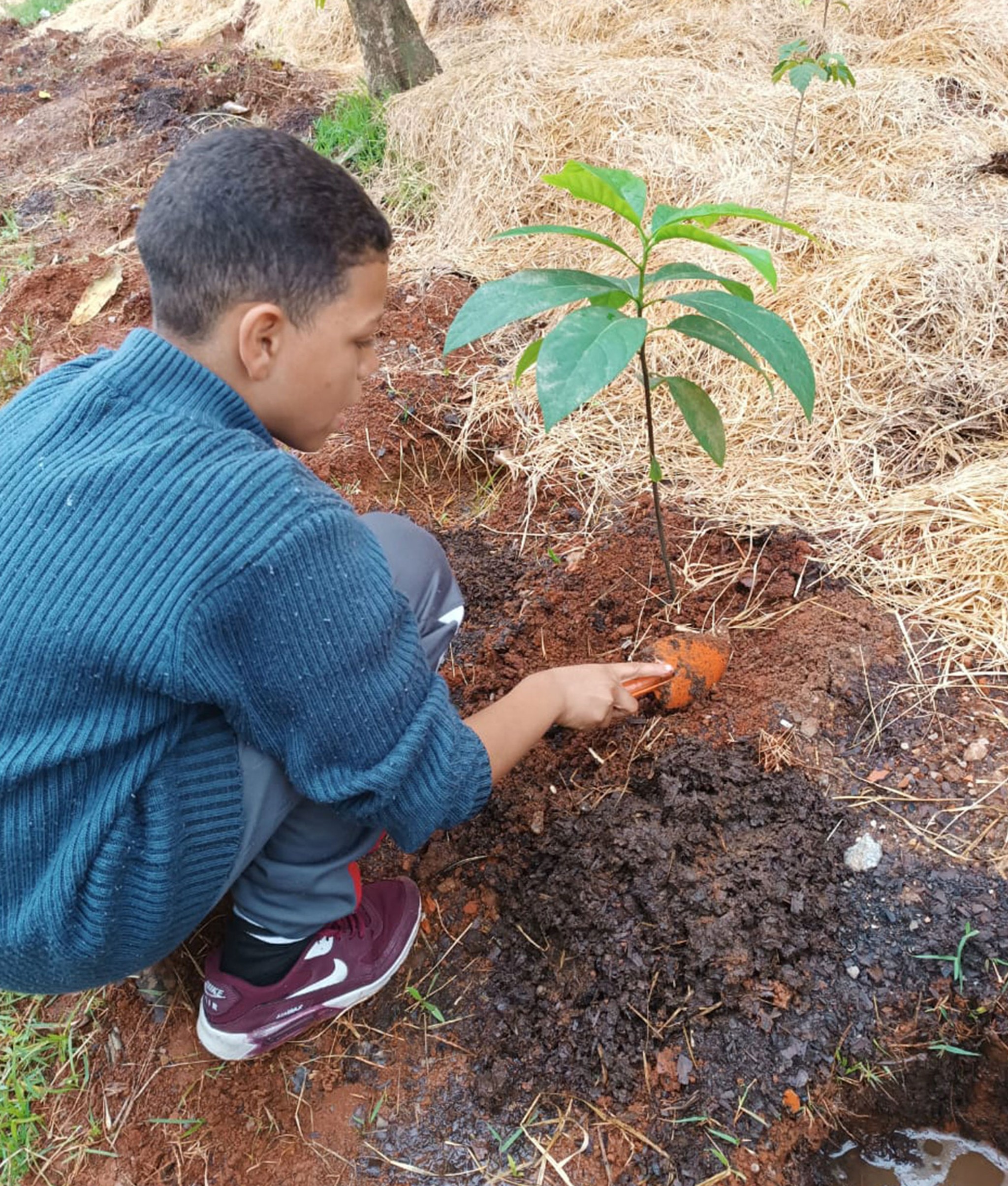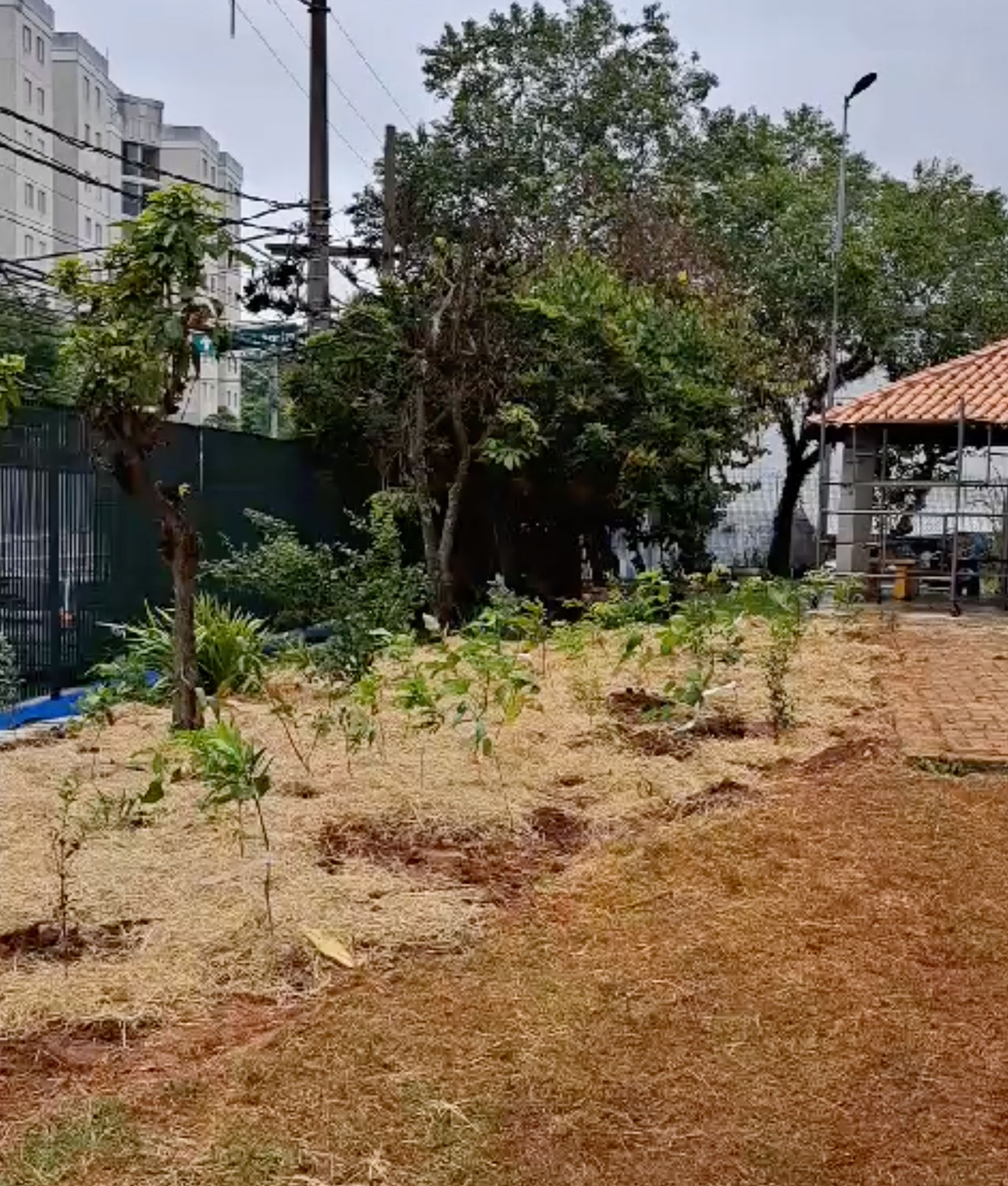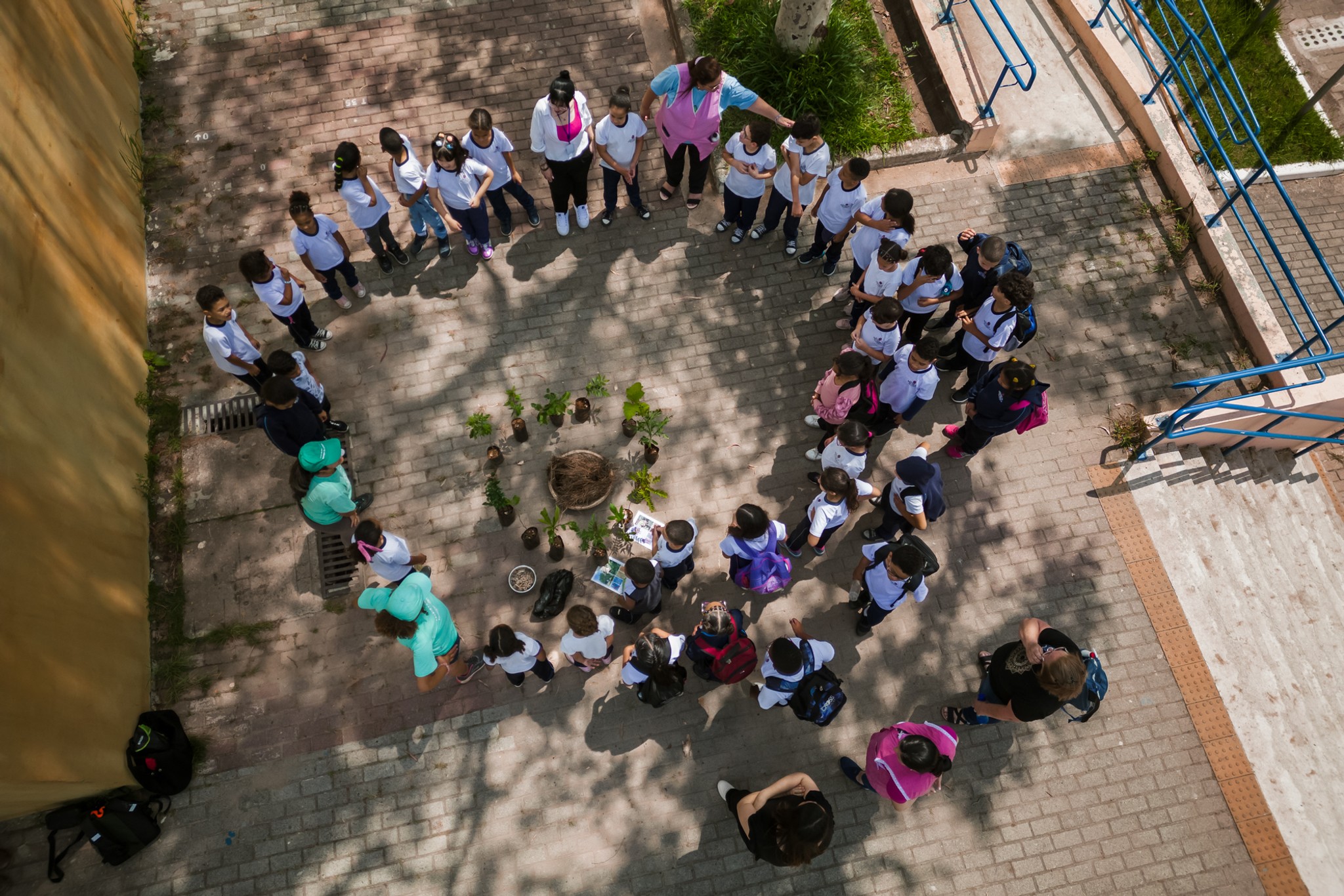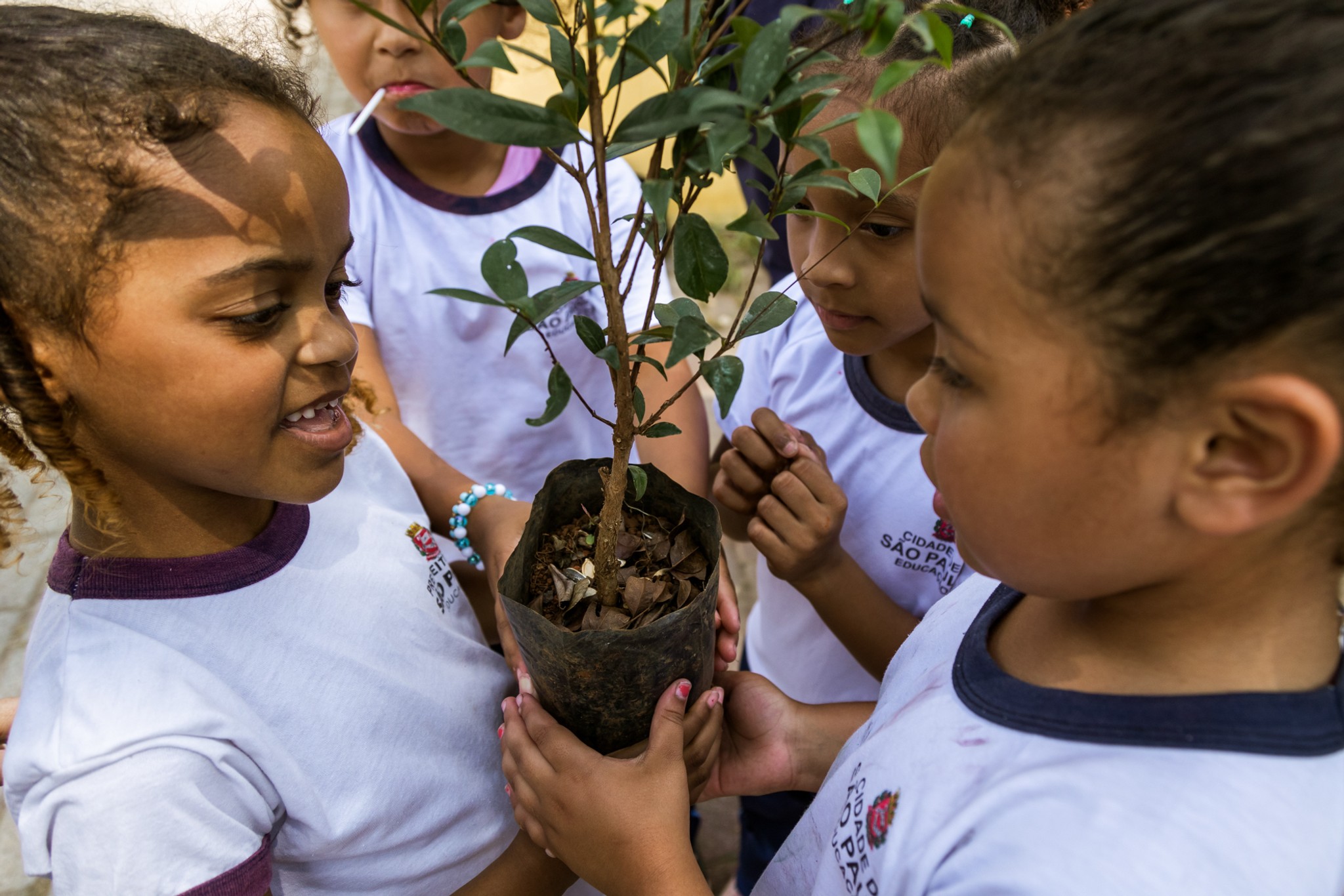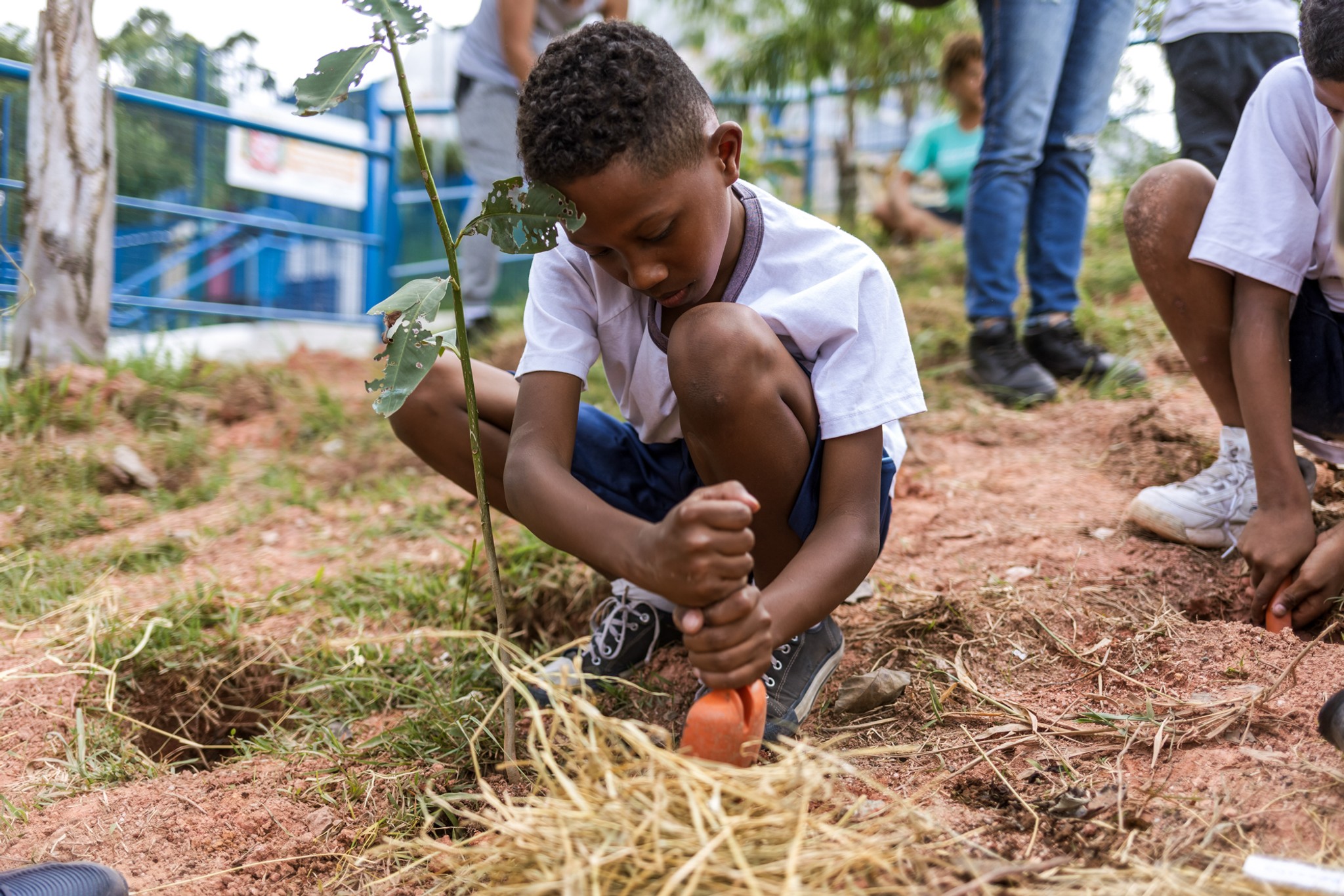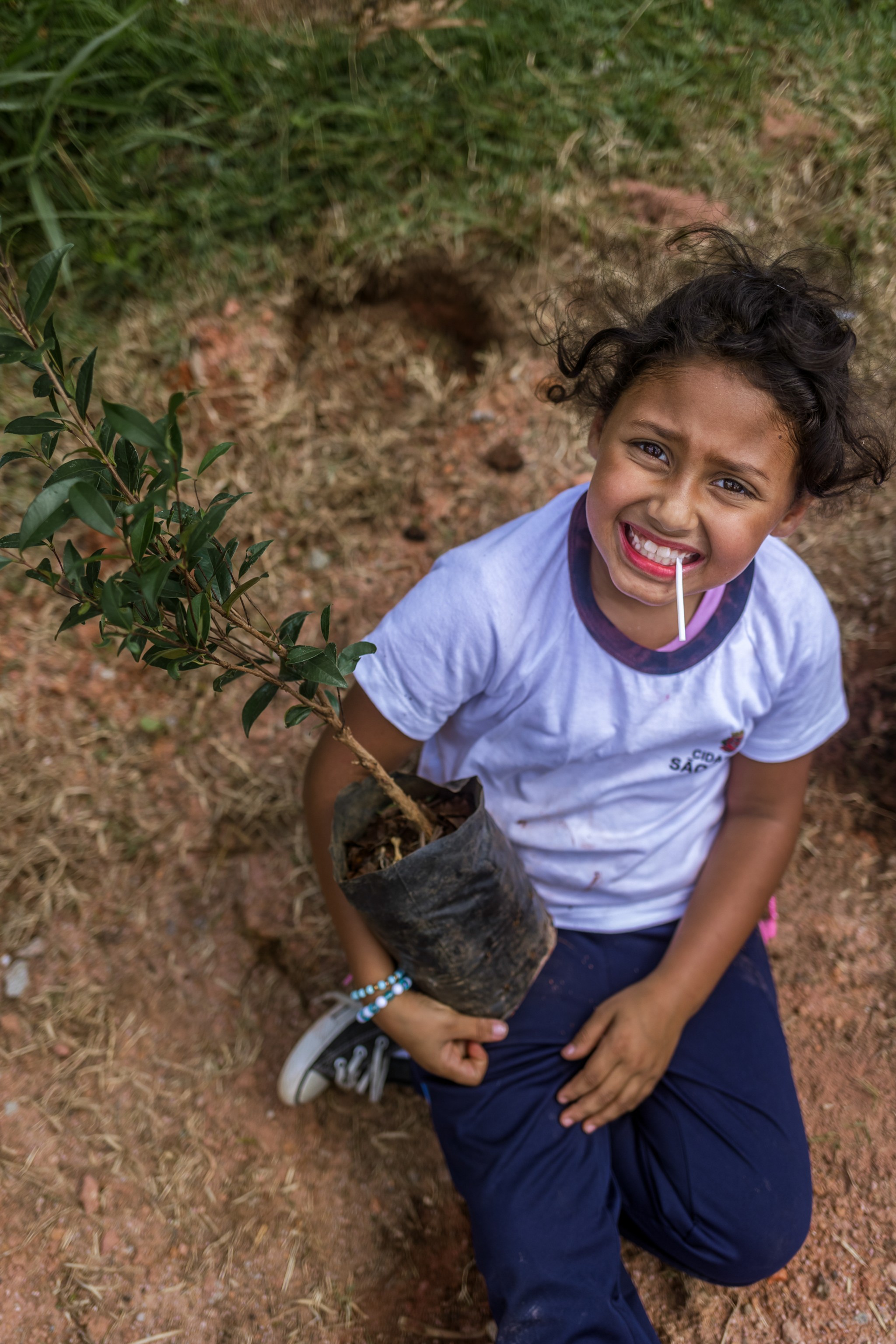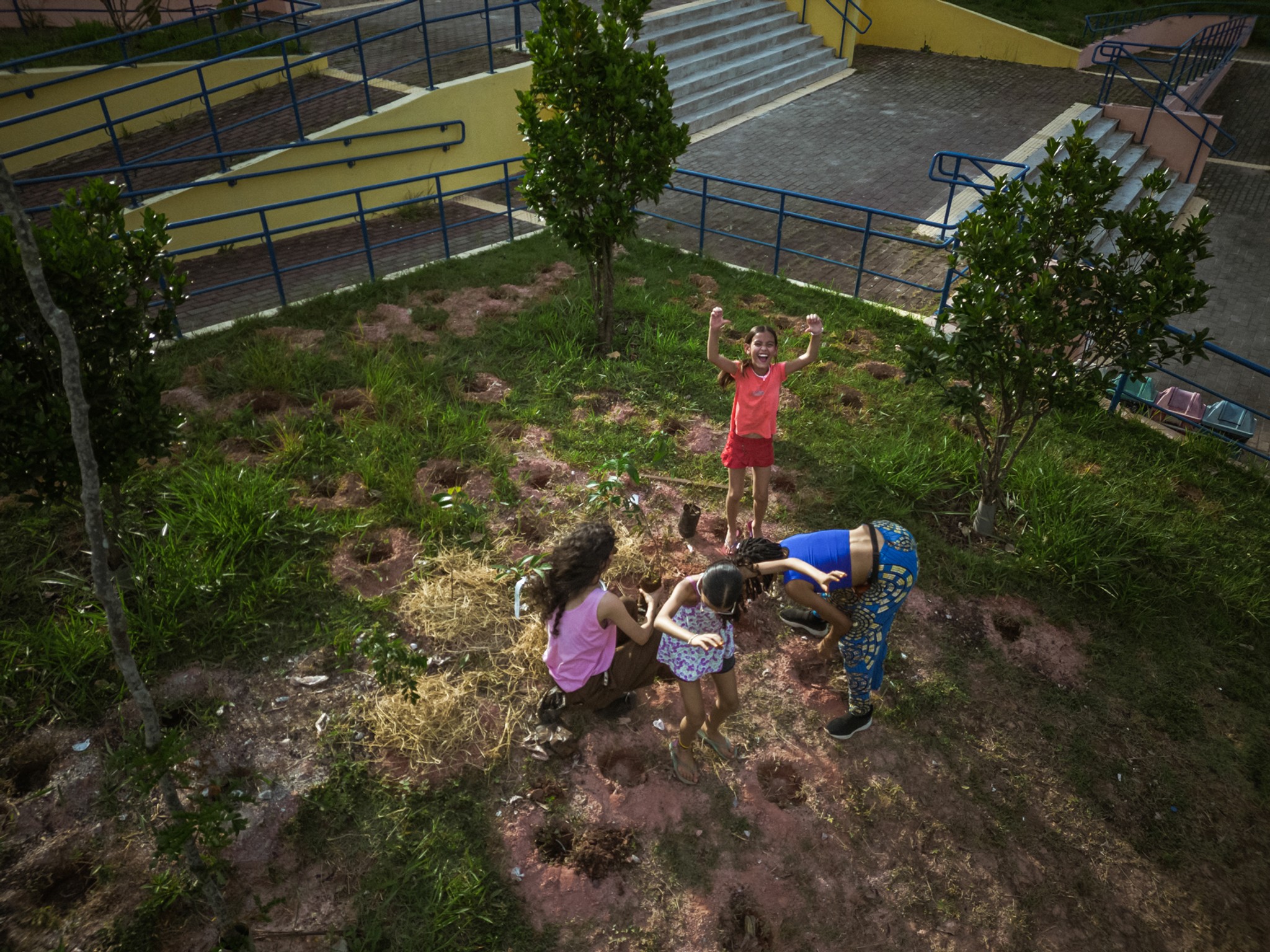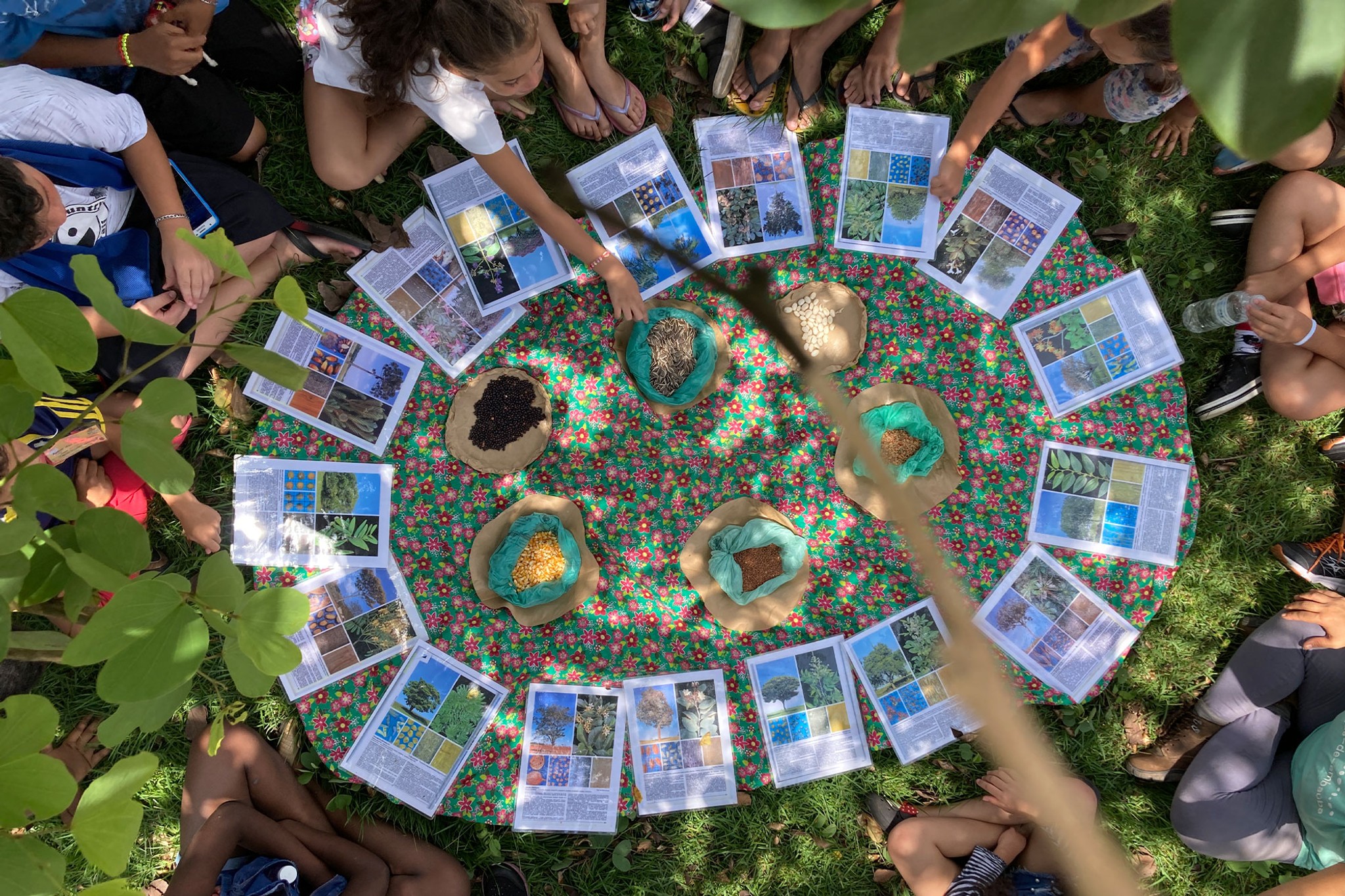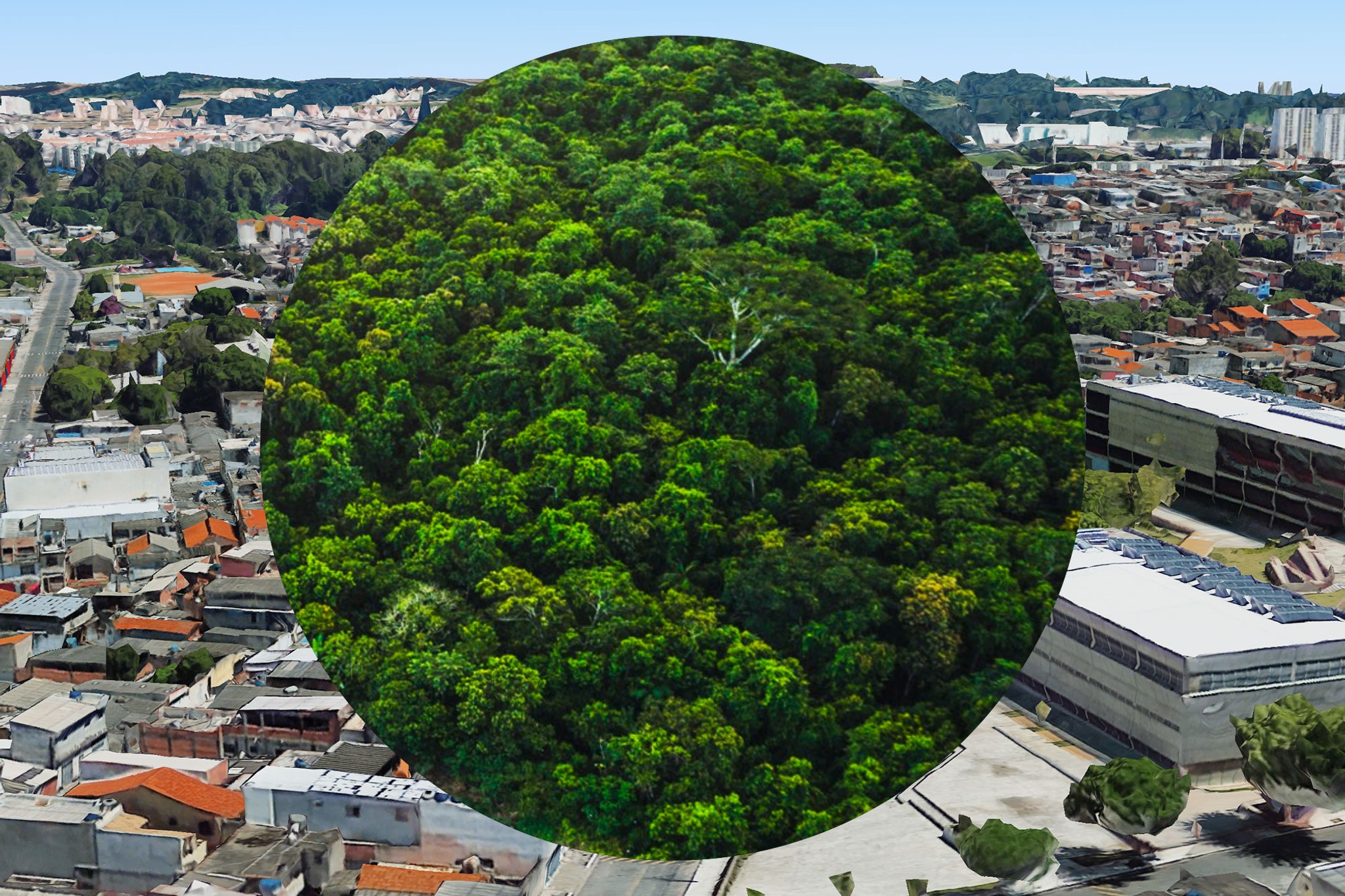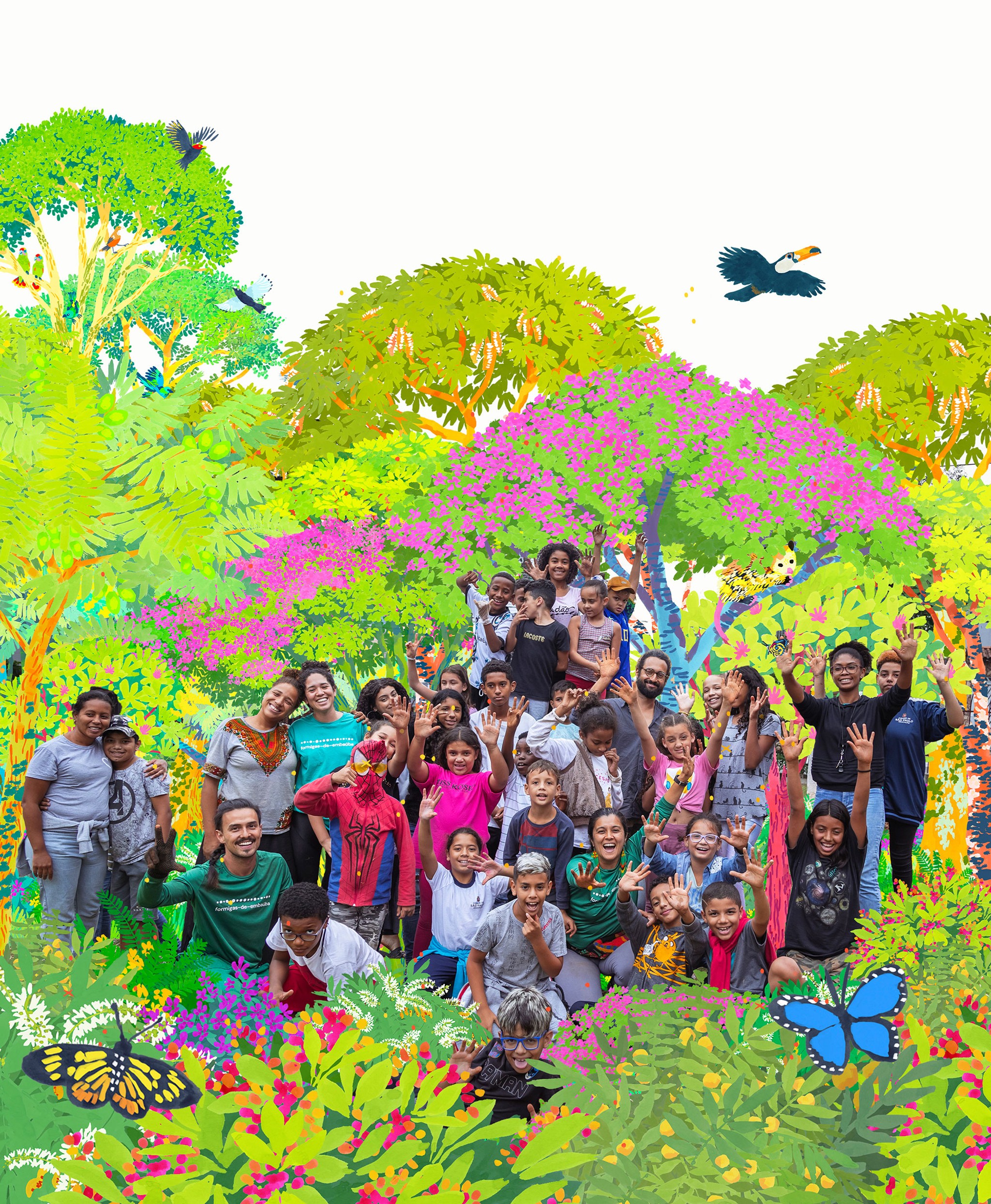Salas de Aula Mata Atlântica I
Reconnecting schoolchildren to Brazil’s native Atlantic Forest.

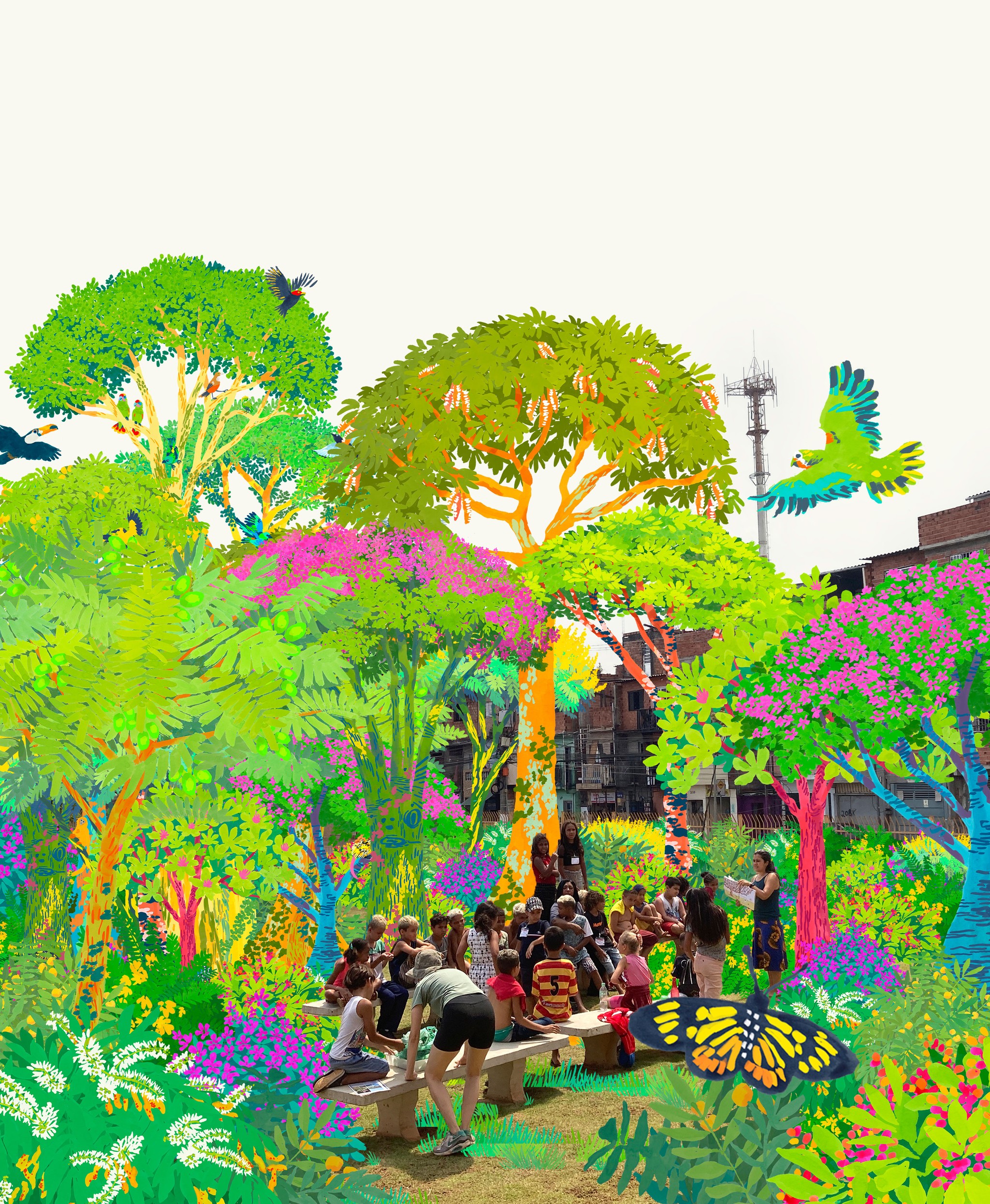
0
Trees
0
Square Meters
0
Native Species
0
Youth Impacted
Salas de Aula Mata Atlântica is an ambitious project that has created a constellation of outdoor classrooms in five Unified Educational Centers (CEU) across São Paulo.
This constellation of forests is restoring denuded or unused pockets of land and transforming them into native - and highly endangered - Atlantic Forest, showing students and the local community how a biodiversity desert can be transformed into a thriving ecosystem once again.
In December 2022, the UN declared the Atlantic Forest as one of the 10 hotspots in the world for ecological restoration, and has designated efforts to do so as one of its 'World Restoration Flagships'.
Forest Maker
formigas-de-embaúba
Outdoor Classroom Design
The pocket forests are meticulously crafted to seamlessly integrate with the surrounding urban environment, whether at a grand or intimate scale.
Embracing a multitude of advantages, this verdant oasis not only offers a plethora of benefits but also serves as an ideal setting for students to forge meaningful connections and acquire knowledge inspired by the natural world.

“When we talk about planting and regenerating a space, we talk about re-signifying that space. It’s about attributing meaning to this space and making students understand that they can be agents of positive transformation.”
Eduardo Murakami, Environmental Education Group, São Paulo Educational Department
Forest Report: 2025
CEU Parque Novo Mundo
0 Months
Forest Age
0%
Survival Rate
0m
Average of 3 Tallest Trees
After the last maintenance session, the overall development of the trees is noticeable. The herbaceous plant Uandu bean (Cajanus cajan) occupies most of the canopy, with significant presence of large pioneers such as Embaúba Branca (Cecropia pachystachya), Sangra d'água (Croton urucurana), Pau Jangada (Heliocarpus popayanensis), Couvetinga (Solanum erianthum), and Fruta do Sabiá (Acnistus arborescens). Among the shorter species, the highlights are Canudo de Pito (Senna pendula), Paineira Rosa (Ceiba speciosa), Mulungu do Litoral (Erythrina speciosa), Aroeira Mansa (Schinus terebinthifolius), and Aldrago (Pterocarpus violaceus).
Birds such as House Sparrow (Passer domesticus), Southern Rough-winged Swallow (Furnarius rufus), and Great Kiskadee (Pitangus sulphuratus) visit the area, along with various pollinating insects.
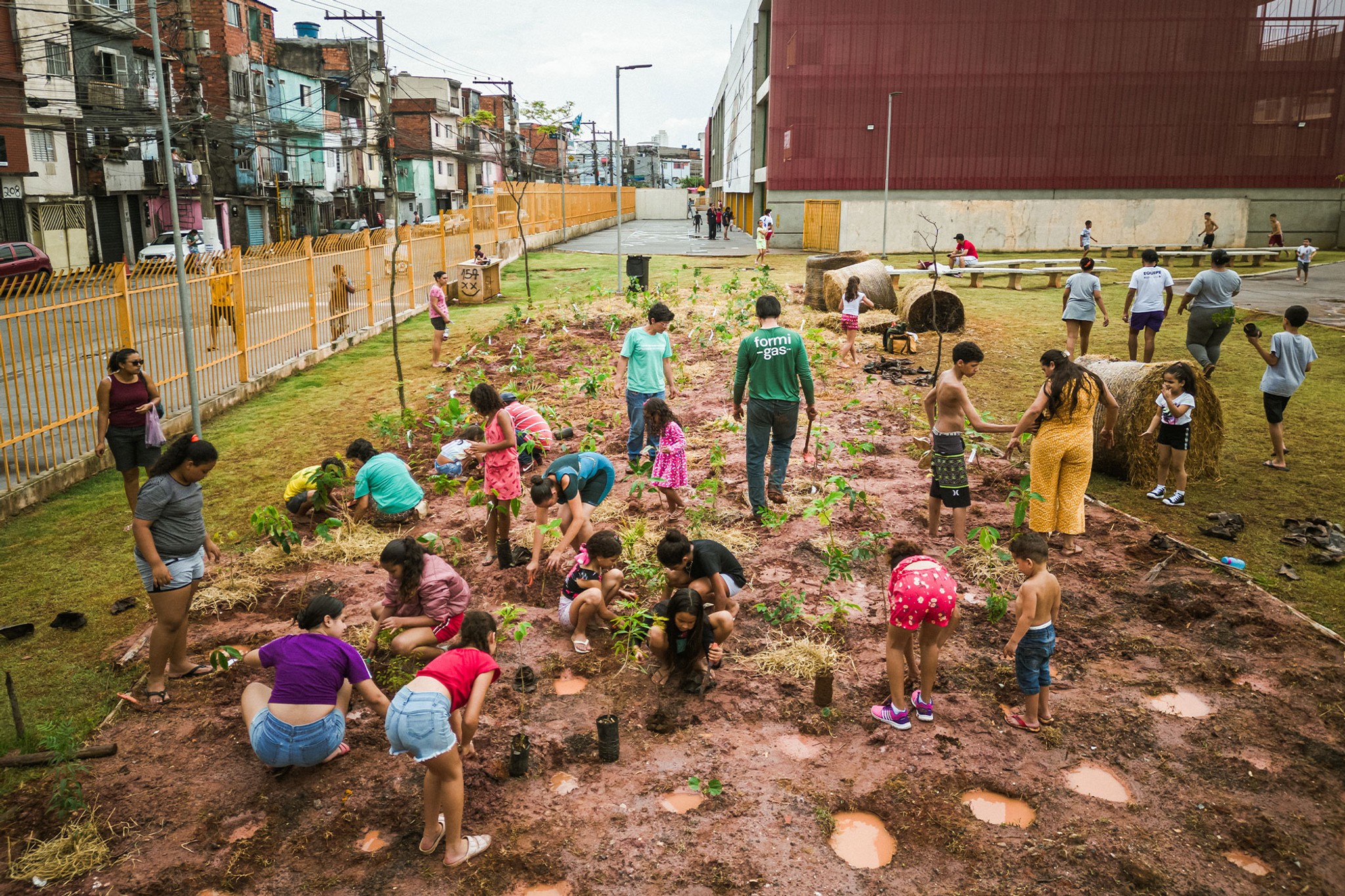

Forest Report: 2024
CEU Meninos
0 Months
Forest Age
0%
Survival Rate
0m
Average of 3 Tallest Trees
The pocket forest is developing well despite being partially shaded by the CEU building. Some tree species stand out for their dense canopies, such as Couvetinga (Solanum erianthum), Aroeira Salsa (Schinus molle), Lobeira (Solanum lycocarpum), Pau-Jangada (Heliocarpus popayanensis), and Embaúba Branca (Cecropia pachystachya). Other relevant, smaller species include Cabreúva Vermelha (Myroxylon peruiferum), Cassia Barbatimao (Cassia leptophylla), Fruta de Tucano (Cytharexylum myrianthum), Taiuva (Maclura tinctoria), and Pau-Jacaré (Piptadenia gonoacantha).The average height of the forest canopy layer is 100 cm.


Forest Report: 2024
CEU Jardim Paulistano
0 Months
Forest Age
0%
Survival Rate
0m
Average of 3 Tallest Trees
In February, 2024 a misinformed contractor hired by the CEU management entered the forest with a brush cutter to cut down the weeds, and about a quarter of the saplings were lost in the process. This is why we have a lower survival rate for this forest - nonetheless, the mini-forest is recovering well after we did some replanting, despite the severe winter drought. We have added a thick mulch layer to effectively protect the soil and prevent weed growth. Some species stand out for their dense canopies, such as Aroeira Salsa (Schinus molle), Lobeira (Solanum lycocarpum), and Embaúba Branca (Cecropia pachystachya). Another herbaceous species that has grown abundantly is Castor Oil Plant (Ricinus communis). On the day of monitoring, it was raining, and so not much fauna was observed except for a couple of Great Kiskadees (Pitangus sulphuratus). The forest is thriving despite this sad occurrence.
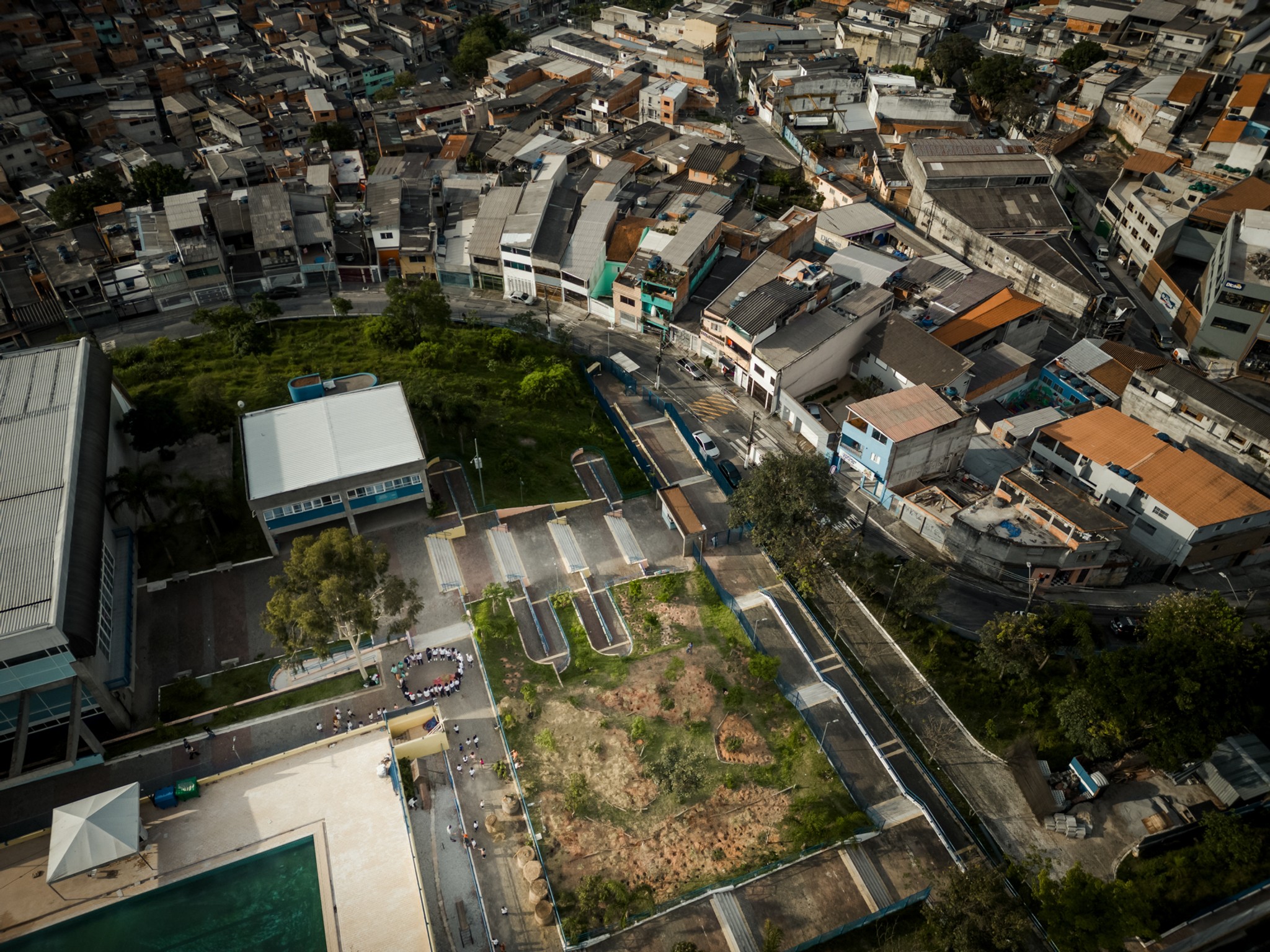

Planting
CEU Parque Novo Mundo

CEU Meninos

CEU Jardim Paulistano

Connecting children to Nature
The creation of these forests is accompanied by a significant 6-month educational programme, thereby amplifying the projects’ impact.
As a whole, Salas de Aula Mata Atlântica forges a connection between thousands of school children and Nature, supporting their wellbeing along with that of the planet. It brings outdoor classrooms to children across São Paulo that will educate, nourish and inspire.
These CEUs are located in highly urbanized and low-income neighborhoods on the outskirts of São Paulo. They are important community spaces, providing free access to educational, cultural and leisure activities for local people, with each CEU also having several schools attached to it. On average, a single CEU serves between 2000-3000 students aged 0-14.
